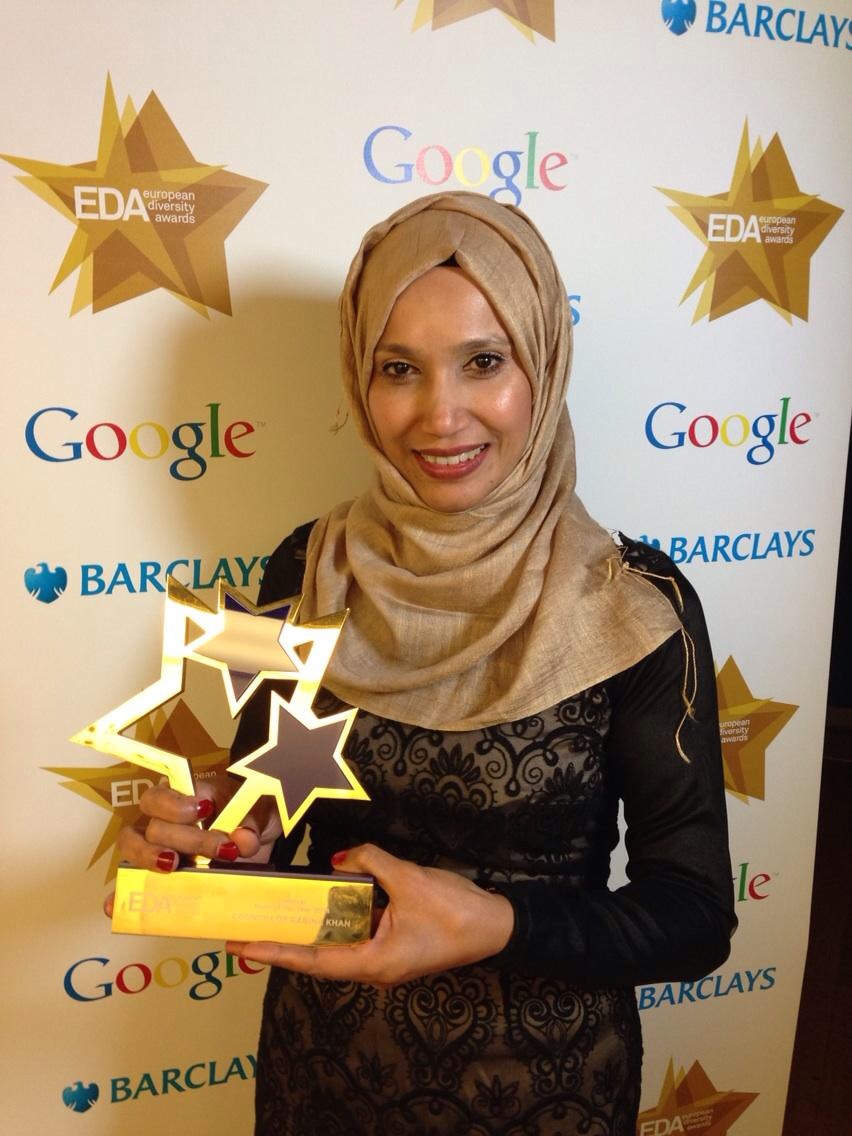 Tower Hamlets councillor Rabina Khan, recently nominated “Hero of the Year” in the European Diversity Awards, has slammed anti-Muslim attacks against the borough and defended its diversity and integration.
Tower Hamlets councillor Rabina Khan, recently nominated “Hero of the Year” in the European Diversity Awards, has slammed anti-Muslim attacks against the borough and defended its diversity and integration.
Khan said that distorted media coverage and damaging comments from powerful politicians help build a negative image of the Muslim community in Tower Hamlets, an image that she has been struggling to change.
She said: “If you watch Theresa May’s [UK’s Home Secretary] speech at the Tory conference, she talks about extremism and then refers to a large Muslim community in Tower Hamlets. She doesn’t exactly accuse us of Sharia law, but she puts them in the same sentence. Comments like these are enough to damage the whole Muslim community.”
Khan has been living and working in Tower Hamlets since she was 19. In the last 15 years she has been campaigning for gender equality and promoting incorporation between different groups in society.
Her work as an independent councillor and community worker promoting equality and diversity earned her the prestigious Unilever Hero of the Year title earlier this month.
Tower Hamlets has recently been under fire after a primary school was subject to an Ofsted inspection amid concerns of Islamic estremism. Even though all concerns were cleared, Khan said that she felt attacked by the negative media coverage. She said: “I think that the media have a wrong perception of the borough. It has been covered in a negative light.”
She voiced her view that some media outlets have picked Tower Hamlets as an “extremist” borough and that too often the focus is on the negativity associated with Muslim communities. Khan challenged this negative image saying: “When it comes to facts, I haven’t heard about one extremist being arrested in this borough, or being challenged and finally jailed.”
As a councillor, Khan has been working a lot with the borough’s youth. She said that the council invested in schools and offered summer camps and clubs to stop antisocial behaviour: “We use their energy in a positive way, not to teach them to go out and bomb people.”
With her work Khan wishes to change the way the Muslim community is represented in mainstream media and confront the stereotypes.
She explained that it has always been a struggle to be a Muslim woman doing politics. She recalls an experience during a meeting:
“The assistant took all the others to their seats but I was left there. They were all white, middle-aged men. I didn’t go and said I was a part of the meeting, I just sat there and waited. The assistant finally came, looked at me and said that the meeting was about to start. He thought I was a secretary.”
Even though incidents like this are still happening, Khan said that she can see a positive change in politics, media and people’s mood. She thinks that one of the reasons for this is social media.
“Younger people go out there to find information because they want the truth, they don’t want the lies. If they have the truth, then they will challenge the Muslim community and they will challenge me. They have the right to do that: if we don’t get challenged, we can can’t bring about positive changes.”
The annual European Diversity Awards are sponsored by companies such as Barclays and Google and go to organisations and individuals that have shown innovation, creativity and commitment to equality, diversity and inclusion across Europe.
